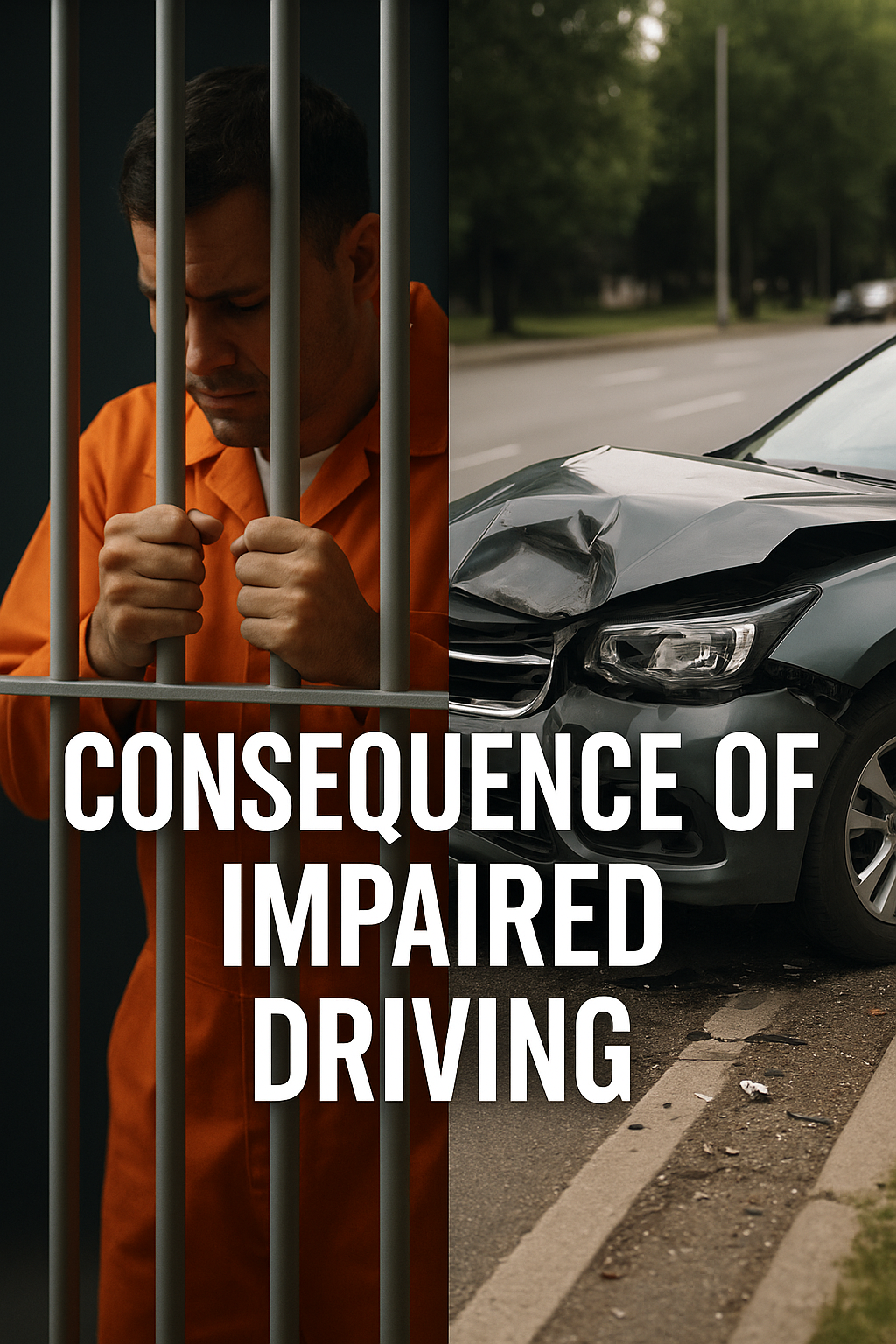
Introduction
Driving under the influence of alcohol or drugs has life-changing consequences—not only for the driver but also for passengers, pedestrians, and other road users. These consequences are legal, financial, and personal, and they often extend far beyond the moment of the offense.
Legal Consequences
-
Arrest, booking, and a criminal record.
-
Driver’s license suspension or revocation.
-
Court fines, probation, and mandatory DUI education or treatment programs.
-
Possible jail or prison time for serious or repeat offenses.
Financial Consequences
-
Thousands of dollars in fines, legal fees, and court costs.
-
Dramatically higher insurance premiums (or cancellation of coverage).
-
Fees for ignition interlock devices, license reinstatement, and substance abuse classes.
-
Loss of job opportunities if driving is part of employment.
Personal & Social Consequences
-
Strained family relationships and loss of trust.
-
Damaged reputation in the community.
-
Travel restrictions (some countries may deny entry with a DUI on record).
-
Emotional burden of guilt if others are injured or killed.
Life-and-Death Consequences
-
Increased risk of serious crashes, injuries, and fatalities.
-
The possibility of permanently injuring yourself or others.
-
The emotional and lifelong weight of causing harm or death to another person.
Takeaway
Impaired driving is never just a “mistake”—it has serious, lasting consequences. The best way to avoid them is simple: don’t drive if you’re under the influence of alcohol, drugs, or anything that impairs your ability to drive safely.
